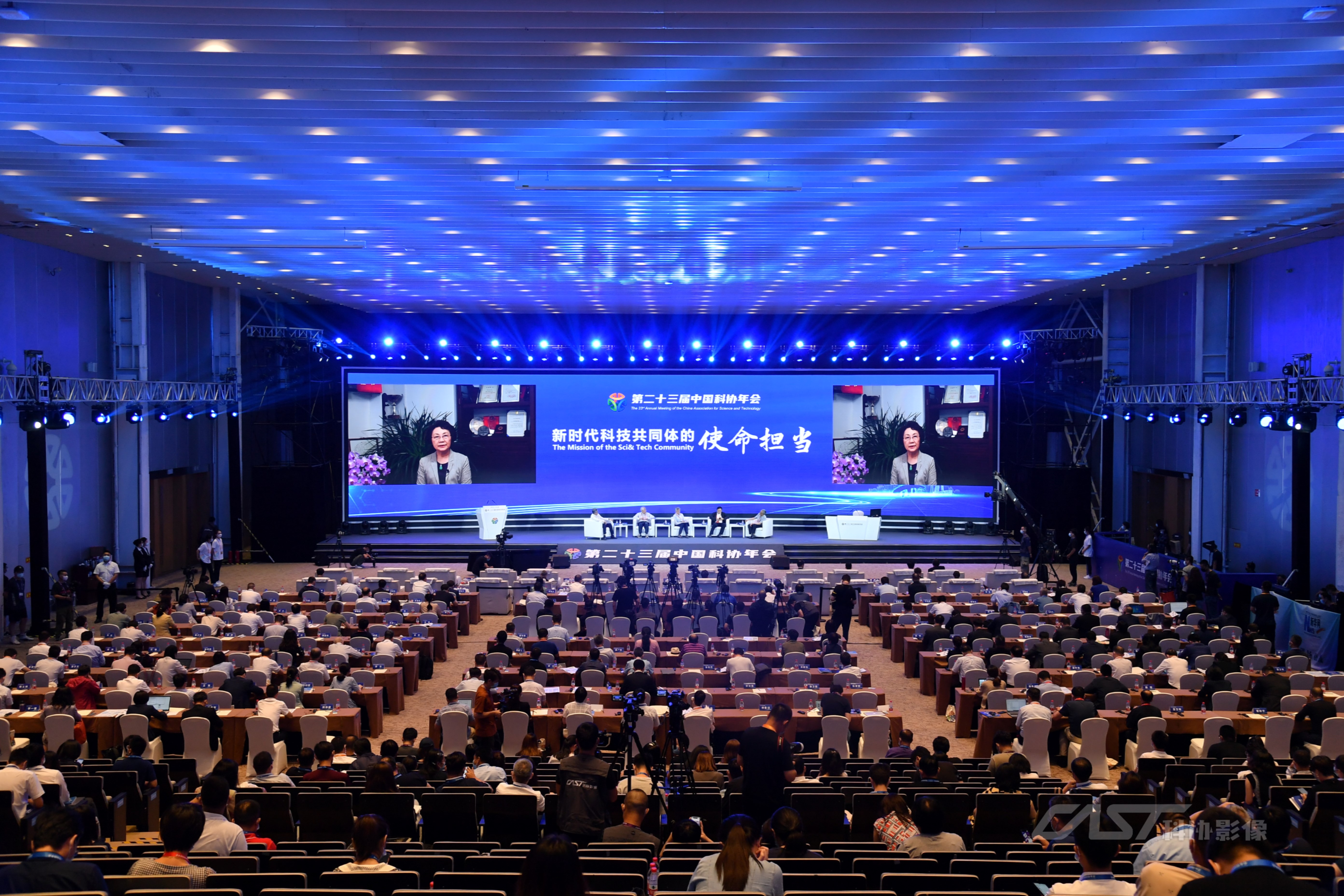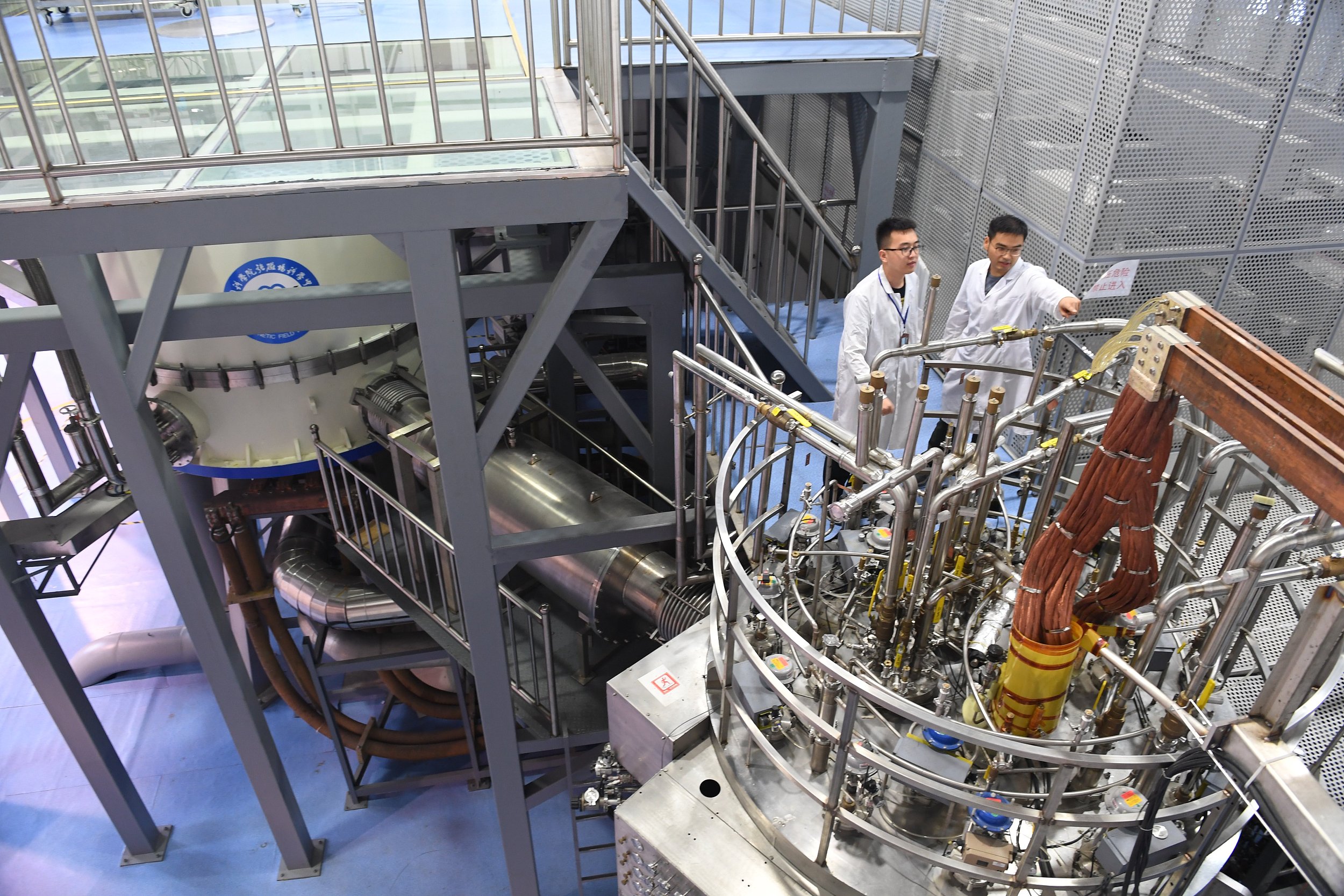Global Sci-tech Cooperation Needed to Benefit Humanity
By Staff Reporters
Humanity has accumulated and established a set of scientific norms through years of human endeavor, emphasizing that science knows no borders and technology benefits all of humankind. The global sci-tech community must adhere to these basic rules and concepts going forward. These are the thoughts of Xue Lan, a member of the Standing Committee of the China Association for Science and Technology (CAST) and dean of Schwarzman College of Tsinghua University, speaking at the 23rd Annual Meeting of CAST at the end of July.
Xue pointed out that in recent years, international scientific and technological cooperation has encountered many new challenges, which have affected sci-tech innovative cooperation.

The opening ceremony of the 23rd Annual Meeting of CAST (PHOTO: CAST)
Wan Gang, vice chairman of the National Committee of the CPPCC and president of CAST, delivered the keynote speech at the meeting. He said, in the face of ongoing global challenges such as COVID-19, climate change, food crisis and biodiversity crisis, there is an urgent need for the joint action from the global scientific and technological community.
"We need to advocate the principle of openness, trust and cooperation together and inject impetus into the innovation and cooperation with a new driving force," said Wan.
This is the consensus reached by the other experts attending the meeting. In September 2020, China announced the goal of peaking carbon emission before 2030 and achieving carbon neutrality by 2060 at the UN General Assembly,which serves as a solemn commitment that China has made to the world and represents a profound social and economic transformation.
According to Jin Yong, an academician of the Chinese Academy of Engineering,China needs to reorganize the industrial structure and build a more high-end and high-quality manufacturing industry in order to achieve these goals .
One of the critical areas of global cooperation is deep space. It is a shared responsibility and common mission for humanity to explore, understand and benefit from deep space.
"Deep space exploration is confronted with a number of questions, such as the origin of the universe, life and other major scientific questions. It aims to study how the solar system evolves, which is the most direct concern of humankind. And relevant technologies are being developed to enter and exit outer space," said Zhang Rongqiao, a member of the Standing Committee of CAST and chief designer of China's first Mars exploration mission.
Zhang also said that stepping out of the Earth-Moon System, going faster and further into deep space are common challenges faced by the scientific community.
"China landed its Mars probe, Tianwen-1, on the red planet, ushering in a new chapter of China's deep space exploration. The purpose of our deep space exploration is to show China's responsibility as a major country in the advancement of human civilization," said Zhang, adding, "We are ready to make a contribution to the sustainable development for human society with our counterparts from all over the world."

Wang Gang, president of CAST, took a picture with college students who are interested in science and technology. (PHOTO: CAST)
Cultivating young people's global awareness is advised by Xue to better cope with future challenges. He said that in the process of promoting globalization over the past years, we have not provided enough opportunities for young people to develop a global vision and cultivate global competence. More efforts should be made to enhance exchanges and cooperation among the scientific community, especially among young scientists.
In terms of the role that China's sci-tech community plays in the world, Wan stressed that it will always serve as an advocate for open cooperation, a participant in sci-tech governance and a contributor to innovative development. In addition, he said, "We will always uphold the principle of openness, trust and cooperation and promote multilateral and bilateral international cooperation, actively integrate into the global innovation network to facilitate the exchange of scientific knowledge and scientific thinking and stimulate the vitality of technological innovation."
According to Wan, China seeks to actively conduct the work on impact assessment and rules design for sci-tech risks, and continue to work with the international sci-tech community to jointly tackle major challenges to benefit the development of humanity.

